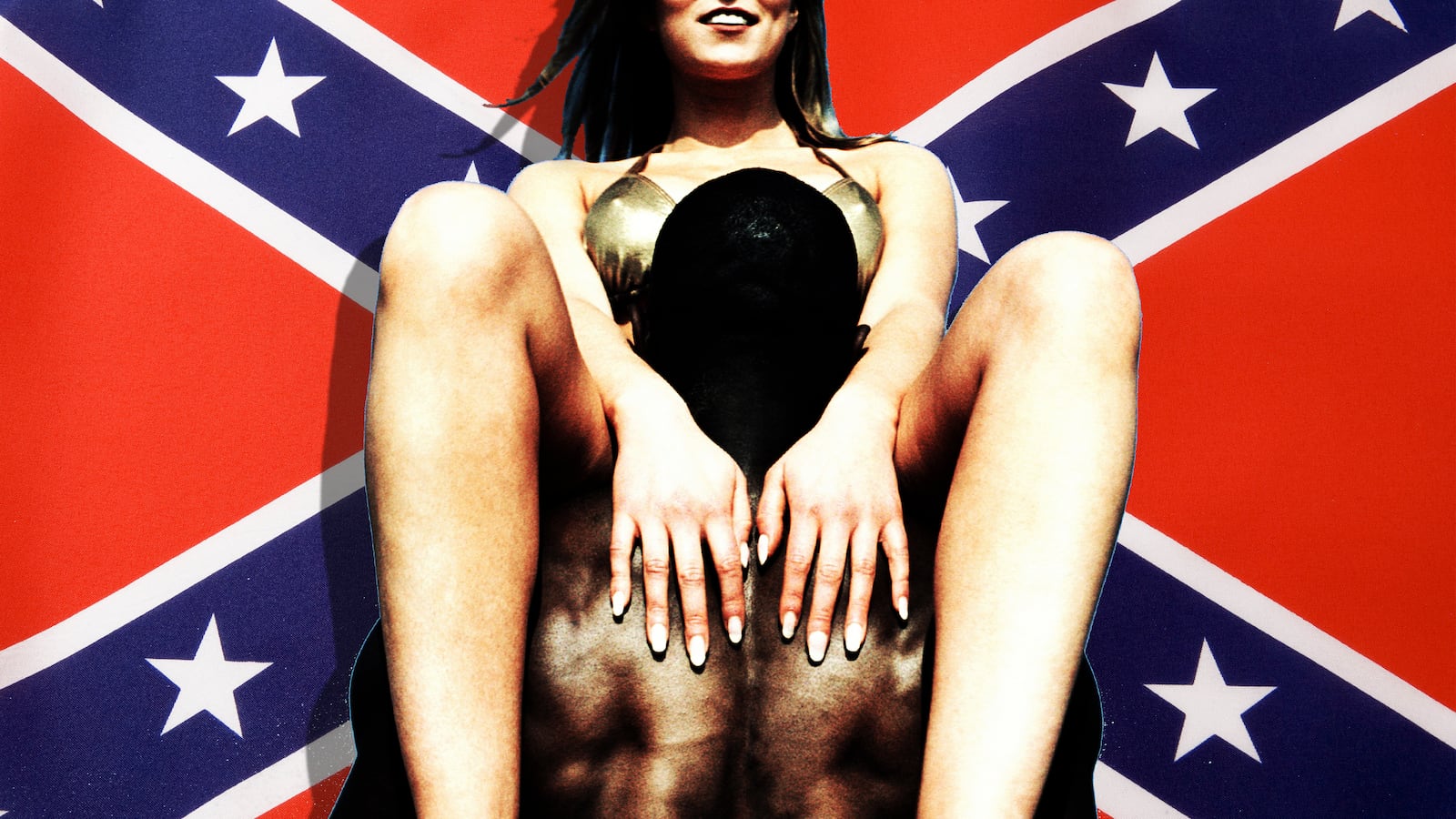Blacks on Blondes. Blacked. Black Bitches. Porn titles often leave little to the imagination catering, rather crassly, to stereotypes and market demand. The “interracial” genre in adult entertainment has been a consistent hit with consumers but there’s a line to be drawn between it and racism. One performer in particular has taken a stand against that most historically offensive of racial slurs.
Moe “The Monster” Johnson filed a lawsuit against director Jim Camp and Dogfart Productions for, he alleges, persuading his female white co-star, Ryan Conner, to call him the N-word on camera without his consent. Camp allegedly obtained consent from Conner before approaching Johnson with the request, which he says he shot down. As the scene came to a close, Conner allegedly addressed him with the racial slur during the “pop shot.” Johnson claims the production company offered to edit the hate speech out of the final product but according to filed court documents, the released scene still contained the offensive material.
Adult actress Layla Price says she was shocked to hear about the pending lawsuit. Price, who has worked with Moe “The Monster” Johnson and Dogfart Productions on previous occasions, recalls being in similar situations where a director has asked her to say the N-word during a scene. “I’ve worked for Dogfart about three times and each time the director’s asked me, ‘Hey, our fans really like it if you say the N-word but if you don’t want to say it that’s fine.’ And each time I’ve said ‘that’s not my thing’ and they didn’t argue with me,” says Price.
When asked to use hate speech on set Price refuses—but also offers different types of dialogue to appease the producer, playing up the racial aspects. “I personally don’t like racism in porn. I’ll play it up nicely and be flirtatious about it,” says Price. “I’ll say things like ‘hot chocolate daddy’ but I won’t say the N-word. It’s degrading in my opinion.”
Adult icon and three-time AVN Male Performer of the Year Lexington Steele says “there is no fiercer or harsher term” than the N-word. Before he traded life as a stockbroker for that of an adult performer/director and then CEO of his own XXX company Mercenary Pictures, Steele graduated from Syracuse University with a double major in History and African-American studies, giving him a unique perspective to the industry’s nuances. Reflecting on whether or not the adult industry has become more racist under the Trump administration, Steele, who is black, believes that while there may be more tension, it’s also a continuation of preexisting racial themes. “Now people are noticing it more,” says Steele. “Let’s remember: porn often reflects society.”
According to Steele, he’s only recently encountered an issue with a performer’s use of voluntary racial slurs. “I had a girl take it upon herself to say ‘nigga’ twice during a scene. I told her I don’t allow the use of that on my sets and she felt the need to argue with me. Essentially she felt because she had said it on other sets that it was okay,” Steele recalls. “I’ve been a director for fifteen years and never had that on my set.”
Attorney Dan Gilleon, who is representing Moe “The Monster” Johnson in his lawsuit against Dogfart Productions, is concerned the Trump administration may be encouraging racism in new generations, passed down from fathers who feel emboldened in their racist beliefs, backed by their president. “Racism seems to flourish in the [adult] industry because a large segment of society doesn’t care, and that’s where these abuses stem from,” says Gilleon. “When they look at this [case] they take a Rudy Giuliani approach, like, ‘These people aren’t even human and not worthy of our respect or concern, so let them attack each other all they want.’ Unfortunately that’s the reality of our society right now, but with lawsuits like this societal attitudes should change.” (Johnson declined requests for comment.)
To change our cultural attitudes, to improve our society and abandon the bigotry, people need to care. But when people hear it’s a “sex worker” they tend to tune out. In Johnson’s case, it’s taken a step further. “The fact that he’s black, a black male and that he’s a sex worker, those are almost three strikes working against him when it comes to people caring about him,” says Gilleon. “If people don’t care about him, the fact that this actress used the N-word on him, it’s going to be in the back of people’s minds that he got what was coming to him.”
However, as Gilleon notes, there are laws that we must abide by, so no jury should be making decisions based on morality; what they should be doing is making a decision based on the law. “In the law there’s no exception given to a scenario where it’s a black male sex worker concerning his civil rights,” says Gilleon. “There’s no law that says everyone has a a right to work in a hostile-free or discrimination-free environment except black male sex workers. So any sort of moral qualms they have should be set aside.”
While some adult performers have privately scoffed at Johnson’s lawsuit, racism remains a glaring blind spot in adult entertainment, and his taking such a public stance will surely spark conversation—the first step towards change. In the era of the women’s #MeToo Movement it is perhaps even more difficult for a man to stand up and say “me too.” But here he is.






